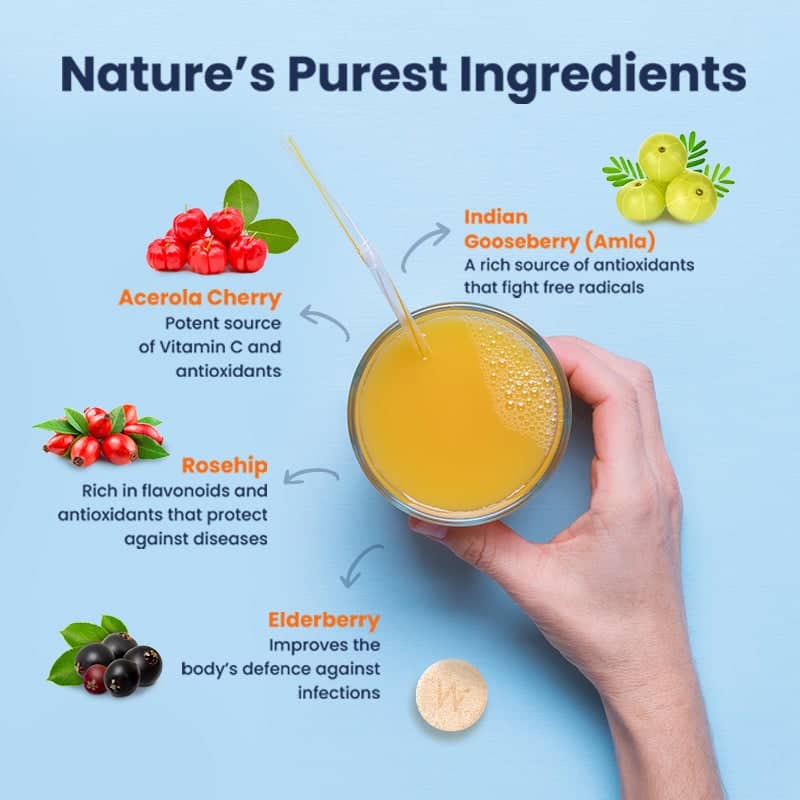Benefits of Vitamin Zinc
When it comes to maintaining a healthy lifestyle, vitamins play a crucial role. One such essential vitamin is zinc. In this article, we will explore the numerous benefits of vitamin zinc and how it can contribute to your overall well-being.
The Importance of Zinc
Zinc is an essential mineral that is required for various bodily functions. It is involved in over 300 enzymatic reactions and plays a vital role in supporting the immune system, promoting wound healing, and aiding in DNA synthesis. Additionally, zinc is necessary for proper growth and development, cognitive function, and fertility.
Boosting the Immune System
Zinc is renowned for its immune-boosting properties. It plays a critical role in the development and function of immune cells, including white blood cells and T-cells. Adequate zinc levels can help strengthen the immune system, making it more efficient at fighting off infections and illnesses.
Promoting Wound Healing
Zinc is involved in all phases of the wound healing process, making it a vital nutrient for proper tissue repair. It aids in blood clotting, collagen synthesis, and cell proliferation, ensuring that wounds heal quickly and effectively. Including zinc-rich foods in your diet can significantly improve the healing process.
Supporting Cognitive Function
Studies have shown that zinc plays a crucial role in cognitive function and maintaining a healthy brain. It is involved in neurotransmitter function and helps regulate synaptic plasticity, which is essential for learning and memory. Adequate zinc intake has been linked to improved cognitive performance and a reduced risk of age-related cognitive decline.
Enhancing Fertility
Zinc is essential for reproductive health in both men and women. In men, it is involved in testosterone production, sperm development, and motility. In women, zinc is necessary for proper egg development and hormone regulation. Ensuring sufficient zinc levels can improve fertility and increase the chances of successful conception.
Food Sources of Zinc
Zinc can be obtained through various dietary sources. Some of the best sources of zinc include:
Red meat
Poultry
Seafood, especially oysters
Legumes
Nuts and seeds
Dairy products
Whole grains
By incorporating these foods into your diet, you can ensure an adequate intake of zinc and enjoy its numerous health benefits.

Zinc is an essential mineral that offers a wide range of health benefits. From supporting the immune system to promoting wound healing, enhancing cognitive function, and improving fertility, zinc plays a crucial role in maintaining overall well-being. By including zinc-rich foods in your diet, you can harness the power of this vital nutrient and optimize your health.
Frequently Asked Questions about the Benefits of Vitamin Zinc
1. What is vitamin zinc?
Vitamin zinc is a mineral that is essential for various bodily functions. It plays a crucial role in supporting the immune system, promoting wound healing, and maintaining healthy skin.
2. How does zinc benefit the immune system?
Zinc helps to strengthen the immune system by supporting the production and function of white blood cells, which are responsible for fighting off infections and diseases.
3. Can zinc help with colds and flu?
While zinc cannot cure colds or flu, it can help reduce the severity and duration of symptoms. It has been shown to have antiviral properties and can support the immune response against respiratory viruses.
4. Does zinc promote wound healing?
Yes, zinc is involved in the process of wound healing. It helps with cell division and growth, collagen synthesis, and tissue repair, making it essential for proper wound healing.
5. Can zinc improve skin health?
Yes, zinc plays a role in maintaining healthy skin. It helps regulate oil production, reduces inflammation, and promotes the healing of skin conditions such as acne and eczema.
6. Is zinc important for reproductive health?
Yes, zinc is crucial for reproductive health in both men and women. It is involved in the production of DNA and RNA, supports hormone balance, and contributes to fertility and normal development of reproductive organs.
7. Can zinc help with hair loss?
Zinc deficiency has been linked to hair loss, so ensuring an adequate intake of zinc may help prevent or reduce hair loss. However, it is important to address the underlying cause of hair loss as well.
8. Does zinc have antioxidant properties?
Yes, zinc acts as an antioxidant in the body, helping to protect cells from damage caused by free radicals. This can have various health benefits, including reducing the risk of chronic diseases.
9. How much zinc do I need daily?
The recommended daily intake of zinc varies depending on age, sex, and life stage. For most adults, the recommended amount is around 8-11 milligrams per day. It is best to consult with a healthcare professional for personalized advice.
10. What are good dietary sources of zinc?
Zinc can be obtained from a variety of foods, including oysters, beef, poultry, beans, nuts, and whole grains. It can also be found in certain fortified foods and dietary supplements.




